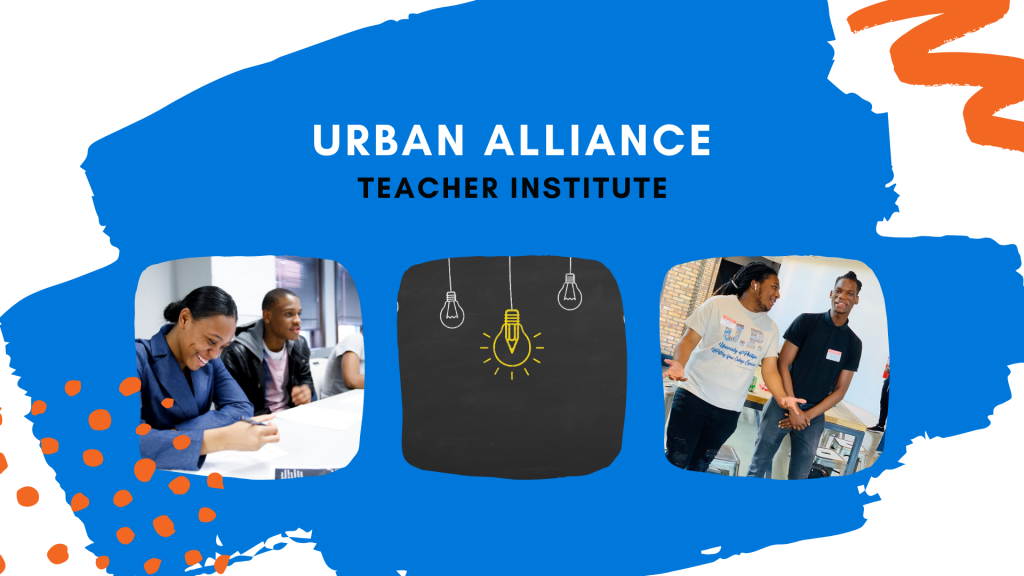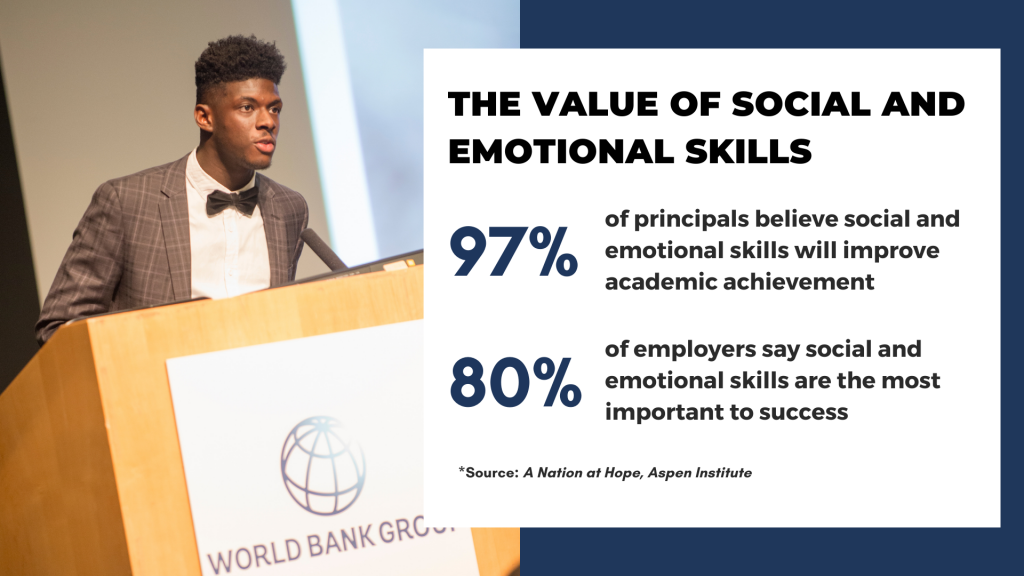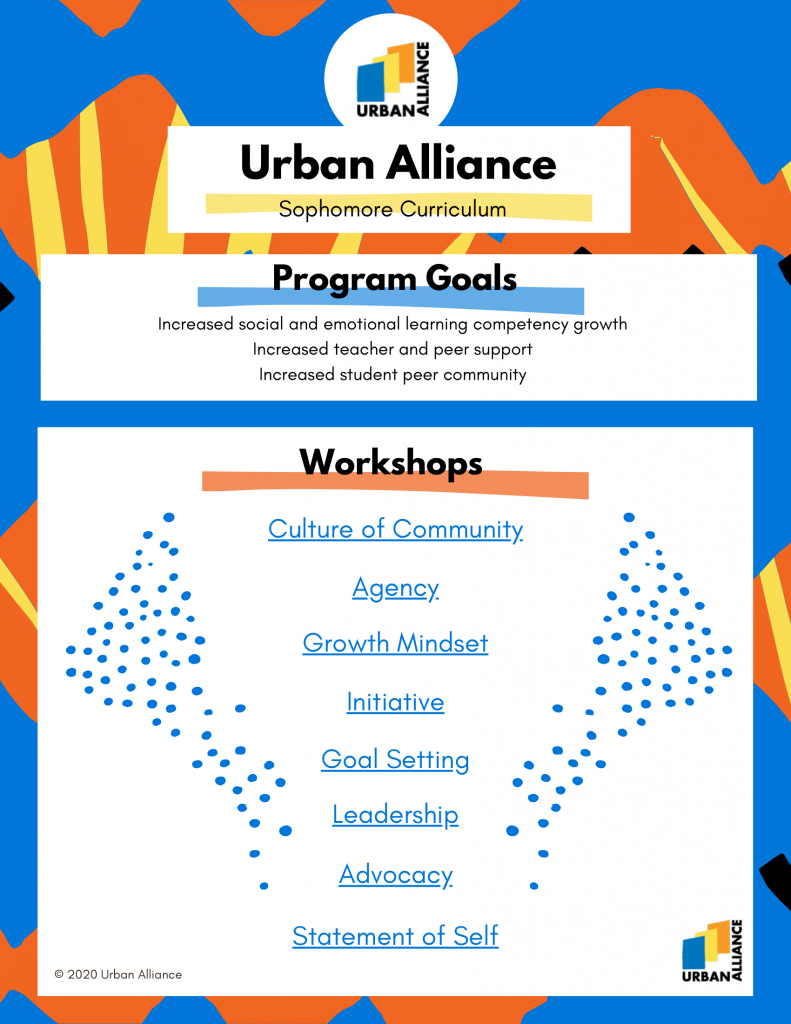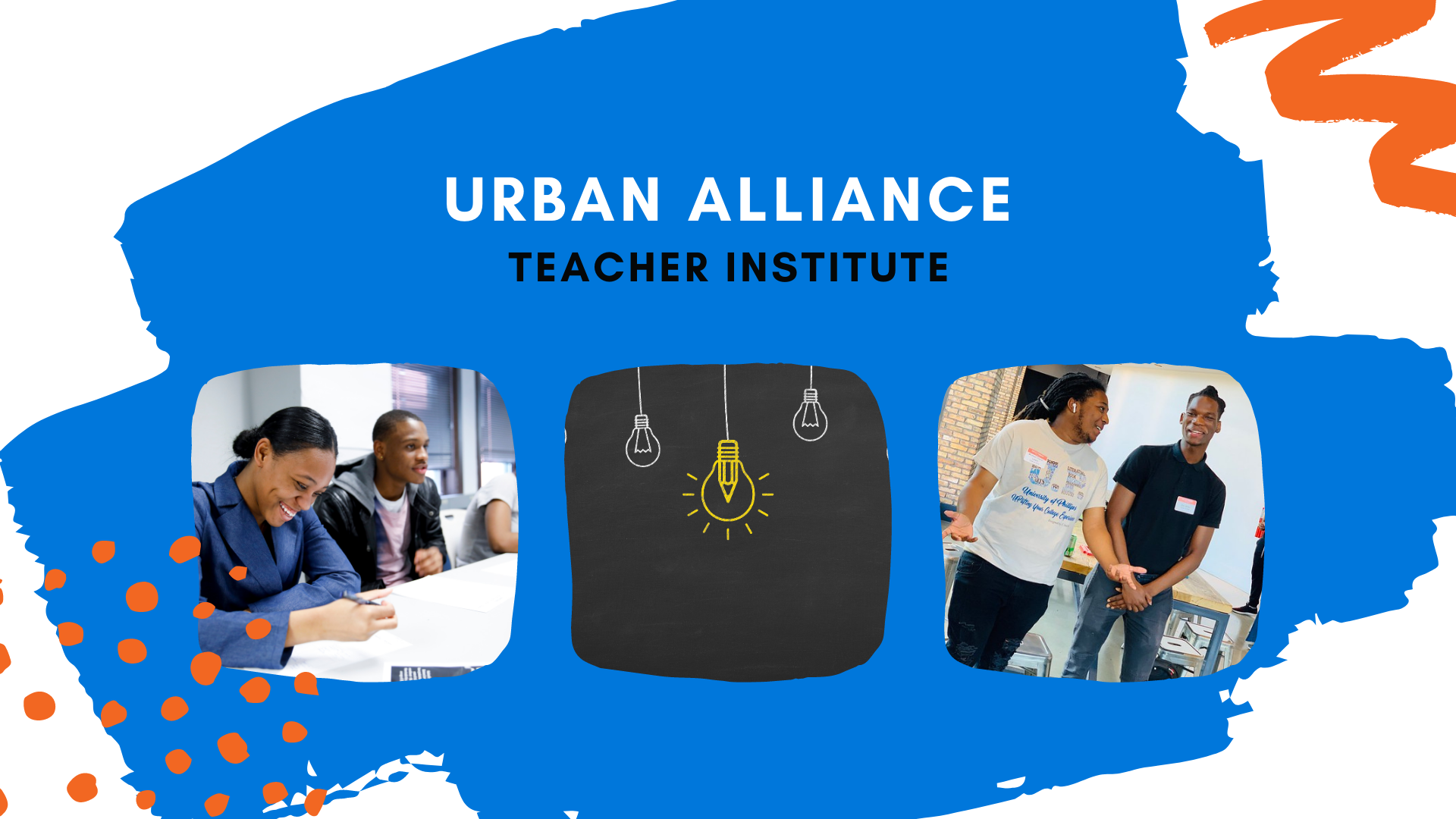
Social and Emotional Skills
Research shows that having strong social and emotional, or soft, skills leads to greater success both academically and in the workplace. However, low-income and minority students have a limited ability to access such environments due to the unequal distribution of resources needed to implement this kind of training in under-resourced communities.
At Urban Alliance, our mission is to bridge the opportunity gap for under-resourced students by providing them with access to the training, work experience, and social capital needed to succeed in adulthood. Our core High School Internship Program is designed using the principles of social and emotional learning (SEL) to develop these uniquely-human soft skills such as communication, adaptability, critical thinking through a workforce readiness framework.

Teacher Institute Pilot Year
With over 25 years of experience and a history of improving workforce and academic outcomes for youth, Urban Alliance is uniquely positioned to provide SEL-based programming that leads to both short-term academic benefits and long-term workforce success for students in Chicago Public Schools. With generous support from the Pritzker Foundation, we created the Teacher Institute to bring this critical training to even more youth.
Beginning with a pilot group of 14 teachers and counselors from schools across the city, Urban Alliance launched the program with a week-long intensive training session in summer 2020. Through a mix of autonomous and structured virtual learning, teachers were trained to facilitate a seven-part workforce readiness curriculum to develop competencies including agency, leadership, taking initiative, building a growth mindset, and more. Teachers received a stipend for their participation, and another for recruiting and coaching 40 sophomores each from their respective schools through the workforce readiness curriculum.
Over the first two years, Urban Alliance expects to train 30 teachers and reach 1,800 youth through this expanded curriculum.
Significance of Sophomore Year
Urban Alliance programming spans the high school experience from freshman to senior year, but our core programming has always served mainly high school seniors on the cusp of the tricky transition to adulthood. Our program is indicative of a broader trend, that while there are a lot of supports available to students just starting their high school experience or preparing for the end of it, there is much less attention and support focused on the middle years – particularly sophomore year.
While freshman year is the make-it-or-break-it year for many students in staying on the graduation track, sophomore year is also critically important. A recent study found that of students who fell off track sophomore year, less than half made it to graduation. So Urban Alliance deliberately targeted our program to this “forgotten grade level” as one participating counselor put it, to help keep students on track and lay the groundwork for more intensive workforce readiness experiences in junior and senior years.
“Historically we have found that sophomores tend to get the short end of the stick when it comes to SEL in general,” said Debra K., school counselor at Disney II Magnet High School in Chicago. “Sophomores are this awesome target group that are right in the middle of their high school experience. They have endured and surpassed that freshman year that can often make or break a student’s high school career. They are at this point that you can reach them and potentially make a difference in the trajectory of the remainder of their high school experience. Any positive changes made in a sophomore’s high school attitude, engagement, and connectedness can truly set them in the right direction for the remainder of high school.”
Year 1 Outcomes
The Teacher Institute pilot group have the freedom to implement UA’s curriculum in the manner and at the time that makes the most sense for their schools, though most have already met their recruitment targets and completed the seven-module training – with great success.
Megan F., a college and career coach at William J. Bogan Technical High School, rolled out the curriculum to the school’s entire cohort of sophomores weekly. Not only did the students respond well to the curriculum, attendance was 8% higher on average after students completed the curriculum, and was particularly engaging for Black and Latino boys, who are CPS’ two key demographic groups who struggle the most with accessing a college education. “Finding a way to get them connected to the college- and career-going culture early may have long-lasting effects that encourage them to participate more or join more programs in junior and senior year,” said Megan. “This type of education helps students find a variety of ways to cope with stress, solve problems, or be a better classmate. I think because they take time to build relationships, we can resolve conflicts easier and have students coming to talk to a trusted adult quicker and easier because they know we are supportive and care about them as a whole person.”
Debra K. from Disney II also rolled out the curriculum to all the school’s sophomores once a month through their English classes. “What I’ve found is that our sophomores genuinely seem to look forward to the Urban Alliance lessons because they are given an opportunity to talk about life and apply what they are learning to real-life situations,” Debra said. “I think this has even created more of a community within our English classes and students even expressed that they felt more connected with their peers virtually during UA lessons than during their normal English class time. We have even noticed some students that never participate in English class actually unmuting or sharing in the chat when we are doing UA lessons. Giving students an opportunity to interact with their peers on a more personal level I think has made a positive impact on many students. I also hope that these will be lifelong skills that they will carry with them through their junior and senior years and beyond.”
Jesse P., a school counselor at Benito Juarez Community Academy, teamed up with another teacher to deliver weekly lessons over a seven-week period. “Students really liked the content because it allowed for self-reflection of their current personal lives,” he said. “It allowed them to explore themselves and see where they are at [sic] and where they want to be, an opportunity that is not really given to students in their academic classes.”
Jesse added that the lessons have been particularly valuable for students during the pandemic as remote learning has made connection with classmates and staying on track more difficult. “Students were able to gain soft skills that are crucial during the time of COVID,” he said. “Remote learning has made schooling very draining for students. The program has given students the skills to self-reflect and plan for their future.”
What’s Next
Urban Alliance is gearing up for Year 2 of our Teacher Institute. If you are a current Chicago Public Schools teacher or counselor interested in bringing this curriculum to your school, click here to learn more and apply by May 17.

